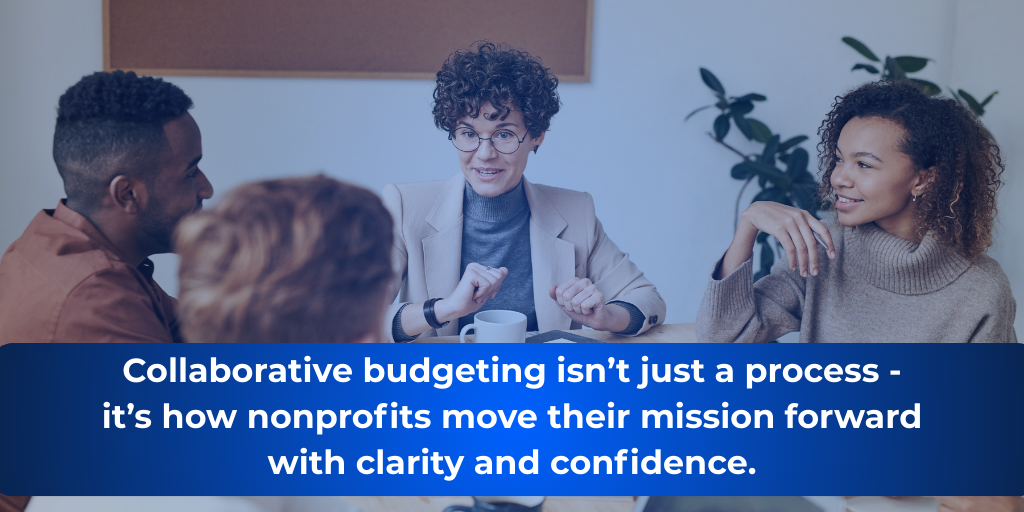Martus Solutions Announces 2025 Partner of the Year Award Recipients
Martus Solutions is proud to announce the recipients of its 2025 Partner of the Year Awards, honoring partners who have demonstrated exceptional...

Nonprofit budgeting is more than a financial process—it’s a mission strategy. And yet, for many organizations, budgeting still feels like an isolated, manual chore. That’s where collaborative budgeting offers a better way. By involving cross-functional teams and leveraging technology, collaborative budgeting transforms budgeting season from a siloed headache into a shared opportunity for insight, accountability, and impact.
“We want to build a culture where people are excited for budgeting season, because they know they can make a difference.” - Joan Benson, Budgeting Expert & Former Sage Executive
Budget season often sparks anxiety—whether it’s dread from overcomplicated spreadsheets or disengagement from teams who feel like their input won’t matter. But it doesn’t have to be that way.
When budgeting becomes a team-wide effort, nonprofits unlock better communication, broader insight, and smarter decisions. That’s not just more efficient—it’s more empowering.
“Sending spreadsheets to 30 different people and hoping they all send them back on time and intact? That’s not a process - it’s a crisis.” - Glenn Strack, Senior Implementation Consultant
Collaborative budgeting platforms help organizations centralize inputs, streamline reviews, and dramatically reduce manual work. They also make real-time scenario planning possible—critical when dealing with fluctuating funding or shifting goals. These tools create clarity across teams and give leadership the data they need to act decisively.
Transparency isn’t optional for nonprofits; it’s expected. That’s why collaborative budgeting tools offer role-based access and support for compliance standards like SOC 2.
Your finance data must be secure, but also accessible to the right people at the right time. That’s how you build trust internally and with donors.
Nonprofits don’t just report for internal purposes. They report to funders, stakeholders, and boards. Collaborative budgeting tools simplify that process and reinforce transparency.
But they also open the door to a bigger question: What’s our return on mission?
Collaborative budgeting allows nonprofits to shift from reactivity to strategy. With the right tools in place, your team can:
Create budgets faster and more accurately
Empower departments to take ownership
Adjust on the fly with scenario planning
Build funder confidence with transparent reporting
Martus makes this all possible—without the spreadsheet stress.
You don’t have to overhaul everything overnight. But moving toward a collaborative approach—supported by smart, intuitive tools—can help you take the next step toward greater impact.

Martus Solutions is proud to announce the recipients of its 2025 Partner of the Year Awards, honoring partners who have demonstrated exceptional...

Budgeting is one of the most important financial planning activities an organization undertakes. It shapes business decisions, staffing plans,...

Budgeting within associations presents unique challenges but it’s a crucial planning step that helps to ensure financial sustainability and mission...